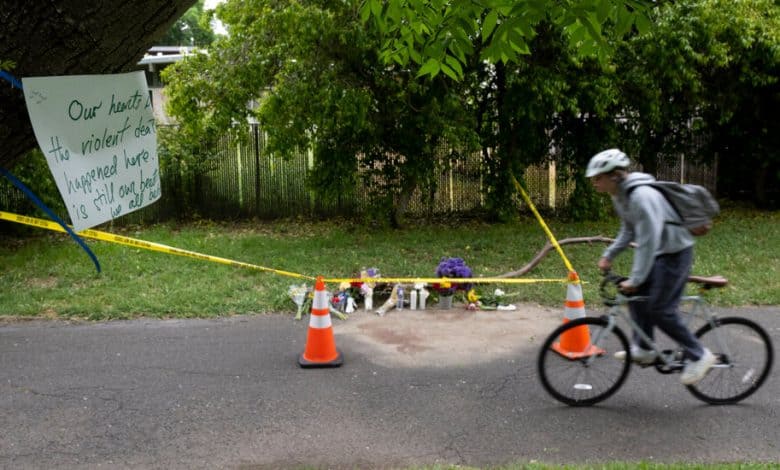Suspect in Davis Stabbings Can Now Stand Trial, Judge Rules

A former college student accused of stabbing two people to death and injuring a third near the campus of the University of California, Davis, is now competent to stand trial after being treated in a psychiatric hospital, a judge in Northern California ruled on Friday.
Acting on a recommendation from the Department of State Hospitals, Judge Samuel T. McAdam of Yolo County Superior Court concluded that the former student, Carlos Reales Dominguez, 21, now met California’s legal requirement that criminal defendants understand the legal proceedings against them and are able to assist their lawyers in their defense.
Mr. Reales Dominguez was arrested shortly after the attacks, and pleaded not guilty to charges of murder and attempted murder. But his mental condition, a concern from the start of the case, soon disrupted preparations for his trial.
At a hearing in August, Judge McAdam found him to be incompetent, and he was sent shortly thereafter to a state mental hospital in Atascadero, Calif., a spokeswoman for the Yolo County district attorney said.
A finding of mental incompetence, which is not the same as an insanity defense, requires that criminal proceedings be paused while the defendant receives treatment. The judge’s finding on Friday allows the proceedings to resume.
Mr. Reales Dominguez, who in past court appearances had been wildly disheveled, and either agitated and incoherent or as rigid as a statue, was clean shaven on Friday with his shoulder-length hair combed away from his face. When the judge asked him whether he waived his right to a speedy trial so that criminal proceedings could be scheduled, Mr. Reales Dominguez responded with a clear and firm “yes.”
The stabbings, which occurred over a period of five days in the spring, rocked the residents of Davis, a city of about 70,000 people west of Sacramento that is best known for the University of California campus there.
The attacks claimed the lives of David Breaux, 50, a local pacifist who slept on a park bench near downtown, and Karim Abou Najm, 20, a computer science major and son of a professor at the university. Another person, Kimberlee Guillory, 64, who had been sleeping in a tent in a homeless encampment, also was stabbed but survived.
At a court appearance in May, Daniel Hutchinson, the public defender representing Mr. Reales Dominguez, urgently requested a competency hearing, saying he did not believe that his client’s mental fitness met the legal standard.
At a subsequent proceeding, held before a civil jury, classmates and friends of the defendant said he had come to U.C. Davis in 2020 as a clean-cut freshman, but soon began to spiral into mental illness.
Roommates and fellow students testified that he suffered a breakdown in the spring of 2021, at the height of the coronavirus pandemic. A former girlfriend said he withdrew socially, stopped bathing or eating regularly, lapsed at times into an almost catatonic state and confided to her that he was hearing voices and that “the devil was talking to him in his dreams.”
His friends, most of them underclassmen like him, said that his behavior scared and overwhelmed them, and they encouraged him, in vain, to seek treatment, pointing out that mental health care was readily available and free at the University of California.
Three psychiatric experts who examined Mr. Reales Dominguez testified that he suffered from schizophrenia; a court-appointed psychologist called his symptoms a textbook case of the disorder.
University officials said Mr. Reales Dominguez was separated from U.C. Davis on April 25. He had failed all his classes, prosecutors said. Two days later, Mr. Breaux, a local advocate for compassion, was found stabbed to death in a park in downtown Davis. Two days after that, Mr. Najm was attacked on a bicycle path in another Davis park, and died from knife injuries.
Mr. Reales Dominguez was arrested after Davis police received more than a dozen reports from residents who said they had seen a slender young man with long dark hair pacing near the scene of Mr. Najm’s murder.
The prosecutor’s office reported on Dec. 28 that officials at the state hospital where Mr. Reales Dominguez was treated had certified his return to competency.
Judge McAdam ruled on Friday that Mr. Reales Dominguez was not a danger to himself or others in a jail setting and ordered that he continue to receive medication for schizophrenia. The judge sent him back to the Yolo County Jail to await a preliminary hearing scheduled for Feb. 26.
